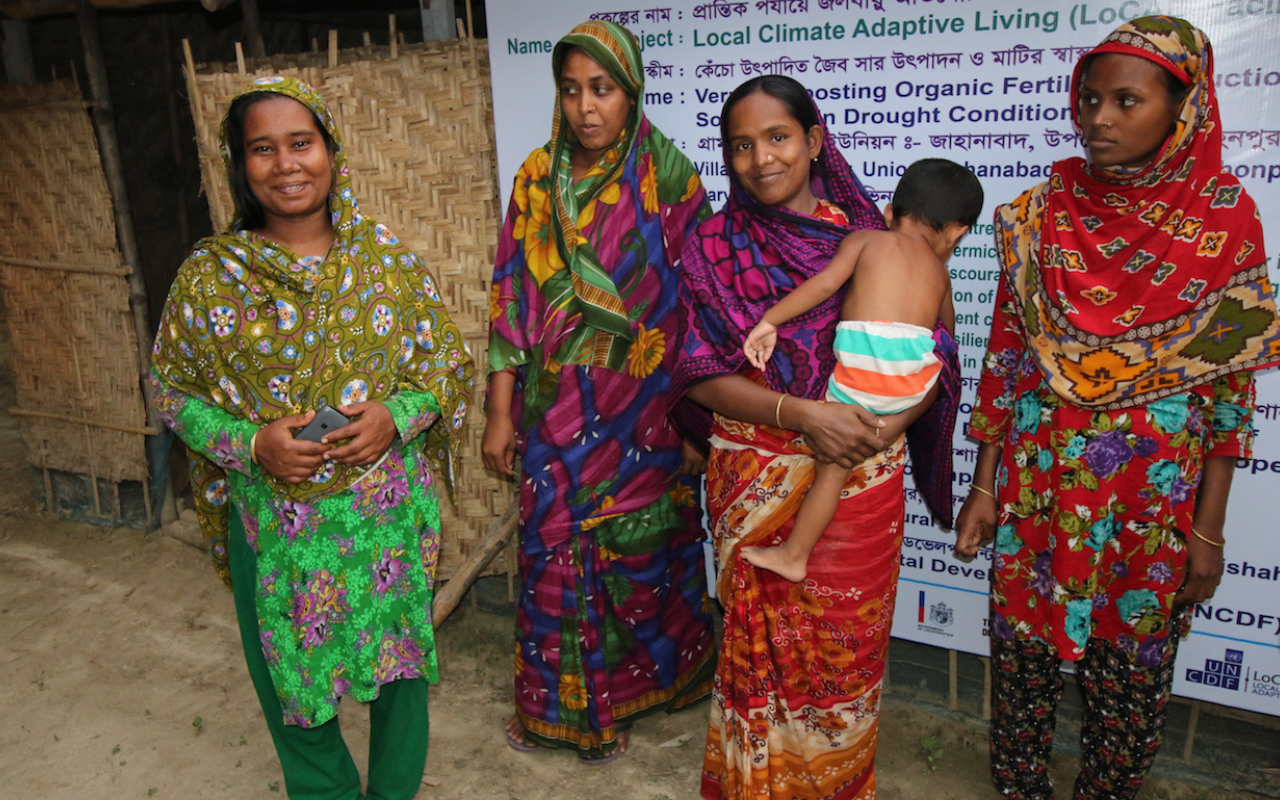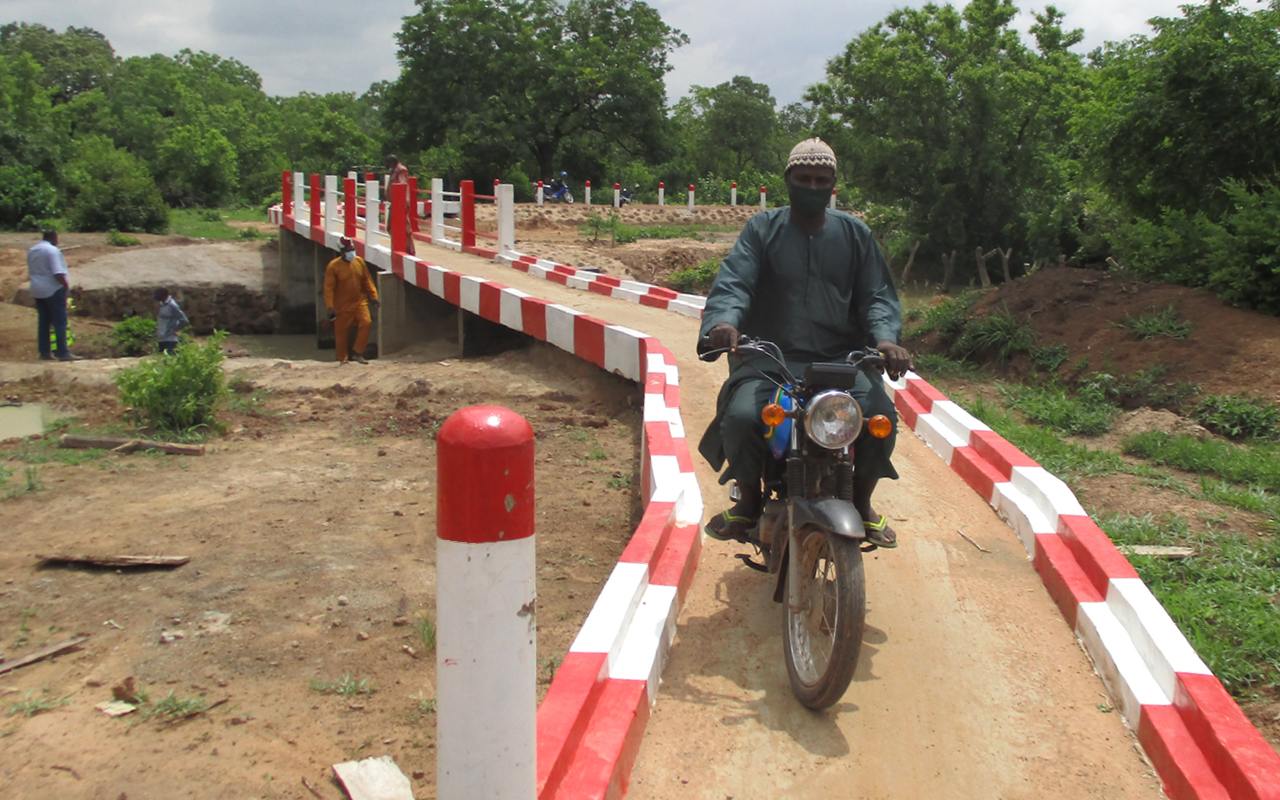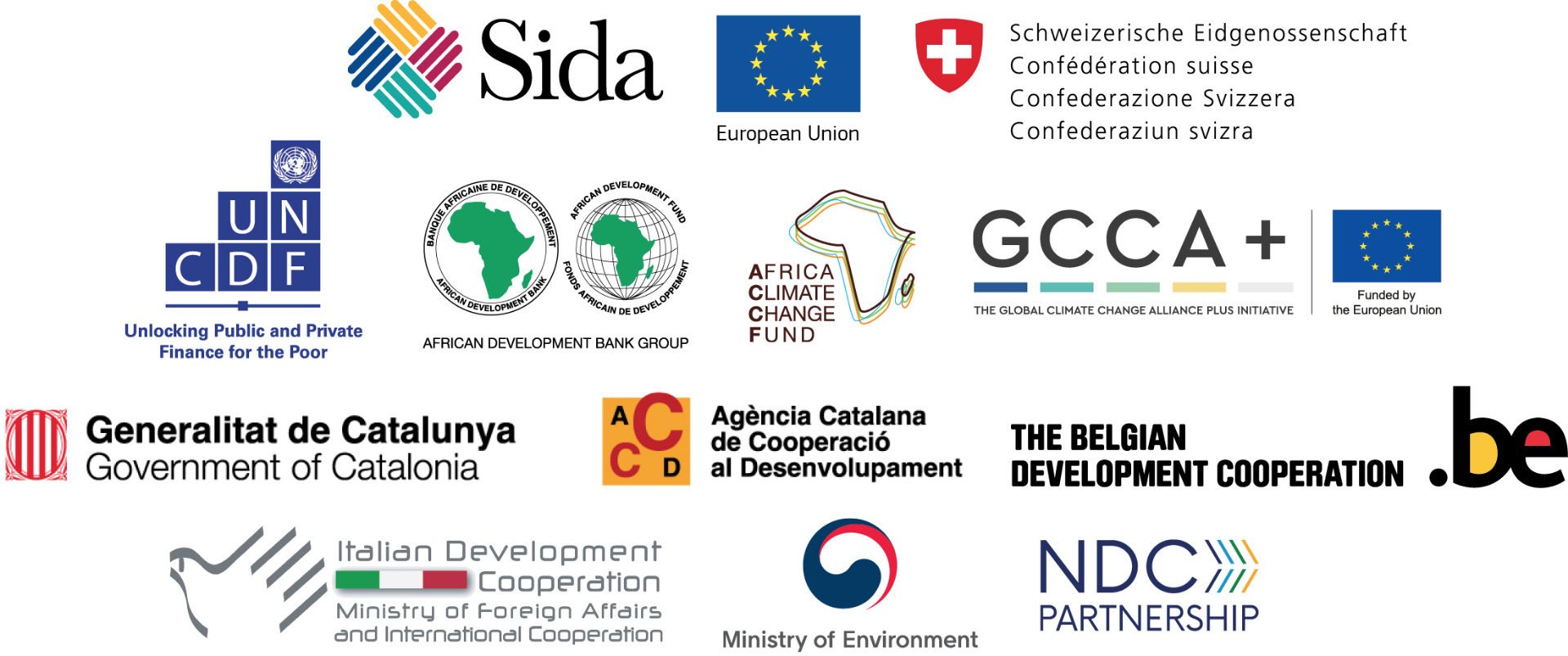
LLA TALKS
NOVEMBER 9th
Country-based mechanisms for Locally Led Adaptation:
Experiences from Asia

From 9:00-10:00 AM
9th November
The adverse impacts of climate change are largely manifested at the local level, thereby requiring actions in climate resilient local development. Stimulating and sustaining such actions would require strengthening of country-based mechanisms of delivery within the wider frameworks for decentralized governance, including adopting new forms of coordination with national and subnational governments, collaboration between adjoining local bodies, partnerships between local bodies and community groups, new ways for mobilizing resources, and inclusive decision-making processes and discuss how country-based mechanisms can be strengthened for locally led adaptation.
This session will share experiences from Cambodia, Nepal, Indonesia and India.
by the LoCAL Facility & ADB
‘From a fast vanishing riverine landscape’: tales of uncertainty, resilience and transformation through visual stories and narratives
From 10:30-11:30 AM on 9th November
The session sketches the issues of lived experiences representing climate change, uncertainty and transformative actions in Sundarbans. The participants of these visual methods tell how climate change has adversely affected farmers and fishermen alike with unpredictable rainfall patterns and continue to make traditional cropping difficult. Through photos and narratives, the stories of history and sense of place will be told from the vantage point of women and youth that are at the forefront of climate change. The photos and narratives synthesise local experience and organise shared collective analysis of the relationships between problems and their causes. The process of reflection and reflexivity is directly linked to action for climate justice and is shaped by an understanding of history, culture and local context.
by the International Centre for Climate Change and Development
Speakers:
Prof. Mizan Knan
Prof. Mizan Knan
Deputy Director at the International Centre for Climate Change and Development (ICCCAD) and Programme Director, LDC Universities’ Consortium on Climate Change (LUCCC)
Prof. Mizan Khan is currently Deputy Director at the International Centre for Climate Change and Development (ICCCAD) and Programme Director, LDC Universities’ Consortium on Climate Change (LUCCC). He served as a Visiting Professor/Fellow at the University of Manitoba, School of Public Policy; University of Maryland; Universite de Poitiers and at Brown University. He is a Lead Author of the IPCC and attends climate negotiations as the lead on climate finance with the Bangladesh delegation since 2001.
Mr. Shibaji Bose
Mr. Shibaji Bose
Visual Ethnographer
Mr. Shibaji draws on long-term visual ethnography and participatory visual action research in remote and climatically fragile zones in South Asia. Alongside his interests in mediating between dominant and implicit narrative spaces with fishers and pastoralists, he has advised and co-curated photo voice exhibitions, directed films and his works have featured in Wellcome Trust and Cannes Film Festival and Health Systems Global symposiums in Cape Town, Vancouver and Liverpool.
Ms. Sumaiya Binte Anwar
Ms. Sumaiya Binte Anwar
Research Officer, International center for Climate Change and Development.
Sumaiya is an Engineer-turned-Climate enthusiast passionate about research in climate change issues and their effects. She has around 2 years of working experience in the climate change research sectors of Bangladesh. Currently she is a research Officer in International center for Climate Change and Development. She nurtures a keen interest on integrated water resource management, security implications of climate change, and landside vulnerability.
Dr. Upasona Ghosh
Dr. Upasona Ghosh
Assistant Professor, Indian Institute of Public Health, Odisha, India.
Dr. Upasona Ghosh is an Assistant Professor, Indian Institute of Public Health, Odisha, India. In her long ethnographic research she focused on the linkage between climate, society and health in environmentally marginalized hotspots of India. Presently, she has close connection with several Government Departments related to disadvantageous regions, Climate change and Disaster and also with various local, National and International Civil Society organizations in order to promote climate and environmental sustainability and community resilience through grass root policy making.
Ms. Mahmuda Akter
Ms. Mahmuda Akter
Senior Research Officer, Climate Change and Disaster Unit, SAJIDA Foundation
Ms. Mahmuda has around five years of working experience in the research sectors of Bangladesh. Currently she is Senior Research Officer, Climate Change and Disaster Unit, SAJIDA Foundation. Also, she is a Research Consultant, International Centre for Climate Change and Development (ICCCAD). She has knowledge of Climate Change Adaptation, Migration, Capacity-building, Disaster Management, and Urban Development.
Dr. Anindita Saha
Dr. Anindita Saha
Research Associate - TAPESTRY Project
Dr. Saha is a Museologist and work as a consultant on conservation of culture and natural heritage. Currently she is working as a Research Associate in the TAPESTRY Project conducted by IDS, Sussex University. She is also an Independent Researcher on current environmental issues related to climate change, uncertainty, sustainable development, resilience, transformation.
Read more
Activating youth voices to accelerate LLA across Africa and beyond
From 1-2:00 PM on 9th November
How can young people drive LLA in communities most affected by climate change? PACJA will convene key stakeholders to reflect on the question, using its Young Digital Activists/Community Resources Persons (YDA/CRP) program as an example of good practice. Over 150 YDA/CRPs currently work in communities cut off from policy processes by COVID-19 to galvanize local leadership in addressing pressing adaptation challenges. Present in 8 countries, YDAs/CRPs are helping maintain awareness, building capacities and channeling local voices to local, national, and global climate policy processes.
by PACJA
Read more Register Watch Live
Cities at the crossroads – The UN System helping cities and local governments accelerate climate action
From 13:15-14:30 PM on 9th November
@ Derwentwater
This One UN event showcases solutions for vertical integration of climate action with emphasis on national policy, local capacity, and finance in three focus areas:
Mainstreaming local climate action into national policies
As Parties submit enhanced NDCs and develop NAPs, NAMAs, and related strategies, the UN supports Parties in incorporating urban priorities into planning and action, promotes innovative and transformative approaches to multi-level governance, and sets more ambitious and verifiable targets for local climate action.
Building local capacities for informed, evidence-based climate action
Understanding urban climate and disaster risks helps governments make informed policy and investment decisions for greater resilience that consider climate scenarios and socio-economic development trends and vulnerabilities. The UN is strengthening local capacities, including through participatory planning and nature-based solutions, to reduce climate and disaster risks.
Unlocking climate finance to localize the NDCs
Limited access to climate finance is a barrier to adaptation and mitigation. Together with partners, the UN seeks to alleviate bottlenecks to finance local priorities as identified in NDCs and related policies and plans to truly localize climate action.
Additionally, this event will highlight how the UN has adjusted its programming to help Parties better address the COVID-19 crisis, including helping cities achieve a green, just recovery. Further, it will reflect some of the emerging outcomes of the recently concluded Innovate4Cities Conference, co-sponsored by IPCC, that is channeling new science and innovation research into the IPCC Special Report on Cities & Climate Change and is updating the Global Research and Action Agenda (GRAA) on Cities and Climate Change Science. 2
by UN HABITAT
Speakers:
Ms. Maimunah Mohd Sharif
Ms. Maimunah Mohd Sharif
Executive Director of the United Nations Human Settlements Programme (UN-Habitat)
As Executive Director of UN-Habitat, Ms. Sharif has focused on reforming and rejuvenating the agency, mobilizing for internal and external support for the organization's restructuring and new Strategic Plan 2020–2023. Her efforts seek to transform the organization into an agile and innovative leader on urban issues has been widely appreciated by stakeholders.
Dr. Diana Ürge-Vorsatz
Dr. Diana Ürge-Vorsatz
Vice-Chair, Working Group III of the Intergovernmental Panel on Climate Change (IPCC)
Dr. Diana Ürge-Vorsatz serves as Vice Chair of Working Group III – Mitigation of Climate Change of the Intergovernmental Panel on Climate Change (IPCC). She is a Professor at the Department of Environmental Sciences and Policy at the Central European University (CEU). She holds a Ph.D. from the University of California (Los Angeles and Berkeley). She served as the Acting Head of Department at CEU in 2002-2003 and directed the PhD program in 2003 – 2004. Dr. Urge-Vorsatz was a Coordinating Lead Author in two Assessment Reports of the IPCC. She served on the United Nations’ Scientific Expert Group on Climate Change, and led the buildings-related work in the Global Energy Assessment. She serves as associate editor of the journal “Energy Efficiency” and is a member of the Editorial Board of “Annual Reviews of Environment and Resources”.
Dr. Zita Sebesvari
Dr. Zita Sebesvari
Deputy Director & Head of Environmental Vulnerability & Ecosystem Services Section, United Nations University – Institute for Environment and Human Security (UNU-EHS)
Dr. Zita Sebesvari is an internationally recognized expert in the fields of social-ecological risk assessments, ecosystem-based disaster risk reduction (Eco-DRR), and ecosystem-based adaptation (EbA), with a focus on low-lying coastal areas, such as river deltas. An ecologist by training, Dr. Sebesvari holds a Ph.D. in Environmental Science from the Carl von Ossietzky University in Oldenburg, Germany. She also holds a M.Sc. in History, and has an extensive interest in inter- and transdisciplinary research design and project implementation.
Ms. Natalie Pareja
Ms. Natalie Pareja
National Climate Change Director, Ministry of Environment, Uruguay
Natalie Pareja is the National Climate Change Director at the Ministry of Environment in Uruguay since March 2020. As a Meteorology Technician she has served the National Navy for more than five years. She has also worked for the private sector.
Mayor Errick Simmons
Mayor Errick Simmons
Mayor Errick Simmons of Greenville, Mississippi or Mayor Belinda Constant of Gretna, Louisiana, United States
In 2007, Mayor Errick D. Simmons began his career in municipal government. Before returning home to Greenville to start his municipal government career, Simmons graduated second in his class at T.L. Weston High School in 1995, second to his twin brother and law partner, Mississippi State Senator Derrick T. Simmons, who is the Senate Minority Leader for Democratic Party. Simmons later studied at Jackson State University, where he received a Bachelor in Business Administration in Economics in 2000. In 2002, he received a Master’s in Arts in Economics from Howard University Graduate School of Arts and Sciences and received his Juris Doctorate from Howard University School of Law in 2005.
Mayor Belinda Constant
Mayor Belinda Constant
Mayor Belinda Constant of Gretna, Louisiana, United States
Before entering public office, Mayor Belinda C. Constant enjoyed a career in the Louisiana court system as a court reporter, educator and leader of alternative sentencing programs. In 2005, Mrs. Constant was elected as the first woman to the Gretna City Council. Since 2005, she has driven revitalization efforts in the City’s downtown. After two terms as Councilwoman, Mrs. Constant was sworn in on July 1, 2013, as the City’s first female Mayor. As Mayor, she has prioritized quality of life, economic development and cultural promotion issues. Working with residents and the business community, her administration has helped facilitate a renewed interest in the City – resulting in countless business openings, new community events and greater community appreciation for the City’s potential. She is the Immediate Past Co-Chair of the Mississippi River Cities and Towns Initiative (MRCTI) – a group of more than 80 mayors along all 10 states of the Mississippi River’s main stem – working to renew federal, state and local attention to the country’s most underutilized economic and environmental asset.
Dr. Marcelo Marcos Morales
Dr. Marcelo Marcos Morales
Ministry of Science, Technology & Innovation (MCTI), Brazil
Marcelo Morales is the Secretary for Research and Scientific Formation of the Brazilian Ministry of Science, Technology and Innovation - MCTI. Dr. Morales holds a Postgraduate degree in Medicine from the University of São Paulo (USP), and holds a PhD in Biological Sciences - Biophysics by the Federal University of Rio de Janeiro (UFRJ) and was a Post-Doctorate fellow at the Johns Hopkins University. Dr. Morales is a Professor at the UFRJ and Carlos Chagas Filho Institute of Biophysics, he is a member of the International Union for Pure and Applied Biophysics (IUPAB) Council. . Dr. Morales also served as president and general secretary of the Latin American Federation of Biophysics Society (LAFeBS), president of the Brazilian Society of Biophysics (Sbbf), secretary of the Brazilian Federation of Experimental Biology Societies (FESBE), and Director of the National Council for Scientific and Technological Development (CNPq). He also worked as coordinator of the National Council for the Control of Animal Experimentation (CONCEA) at the MCTI, and of the American Biophysics Graduate Program card (POSLATAM). He is a Full Professor at the UFRJ, with a research focus on Biophysics, with emphasis on Cellular Biophysics and Molecular Biology.
Dr. Mao Hak
Dr. Mao Hak
Director of the Department of Climate Change at the General Secretariat of the National Council for Sustainable Development, Ministry of Environment.
Dr. Hak Mao graduated a Bachelor on Forestry Science at the Royal University of Agriculture in 2003. In 2008, he was awarded a Master of Science on Marine Environment and Ocean Management at World Maritime University in Sweden. In 2015 he completed a Ph.D. on Low Carbon Development Action in Cambodia towards 2050 and continued as a research fellow until mid-2016 in order to develop a National Strategy on A Design of Low Carbon Development Action in Cambodia towards 2050. He has also engaged with marine and coastal management and development nationally and internationally, notably with the promotion of the development of blue economy and the implementation of maritime law—Law of the Sea and the International Convention for the Prevention of Pollution from Ships (MARPOL). He is currently Director of the Department of Climate Change of the General Secretariat of the National Council for Sustainable Development/Ministry of Environment in Cambodia.
Ms. Jakuta Imširović
Ms. Jakuta Imširović
Head of Department for Ecology & Utilities, City of Zenica, Bosnia Herzegovina
Jakuta Imširović is an Expert Associate for Environmental Protection and head of Department for Ecology and Utilities in City of Zenica. Born on March 1st, 1993 Jakuta is a mechanical engineer, specialized in Environmental Protection. Besides City Administration, Jakuta is a member of the teaching staff at Faculty of Polytechnic and Mechanical Engineering of University of Zenica, working as University Teaching Assistant. She further holds the positions of Green Cities Officer, and Project Manager of several projects the City of Zenica has been implementing with international organisations. Prior to working for City Administration, Jakuta worked as a Project Manager in Zenica Development Agency.
Mr. Bernhard Barth
Mr. Bernhard Barth
Sub-programme Coordinator for Climate Change, UN-Habitat HQ
Mr. Bernhard Barth will be the moderator for this event.
Read more
Methodological approaches for adaptation

From 3:30-4:30 on 9th November
Methodological approaches for adaptation
by AfDB and the LoCAL Facility
LoCAL EVENTS
Join other LoCAL events @COP26
LoCAL is present at numerous events during COP26.
Join the LoCAL Network
Visit our site sections
Get LoCAL news in your mailbox
THANKS TO OUR PARTNERS

Stay Connected
GET THE LATEST UPDATES TO YOUR INBOX